

Within the verdant tropical forests of South America, an avian treasure captures the admiration of birdwatchers and nature enthusiasts alike—the Rufous-headed Tanager.
With its captivating appearance and distinctive behaviors, this species shines as a beloved favorite among those who revel in the marvels of the natural world.
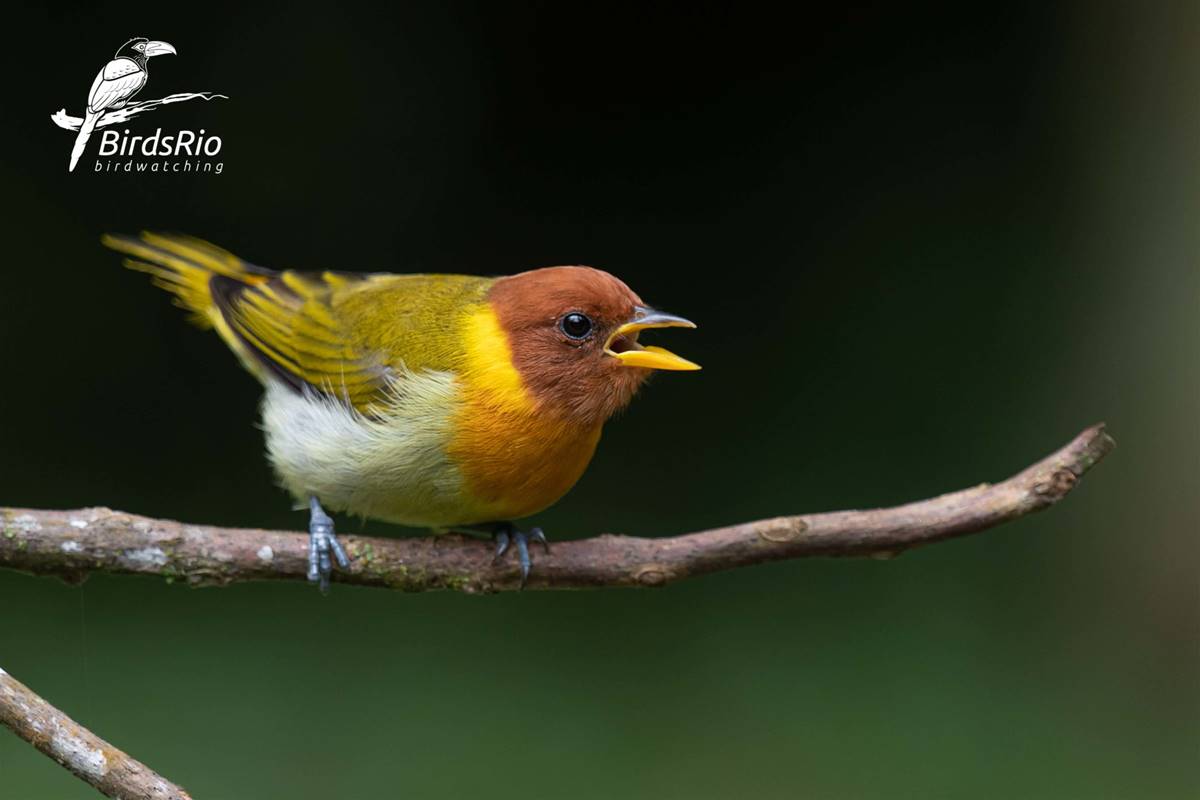
Measuring approximately 16 centimeters in length, the Rufous-headed Tanager ( Hemithraupis ruficapilla) boasts a striking feature that sets it apart—the resplendent rufous color adorning its head.
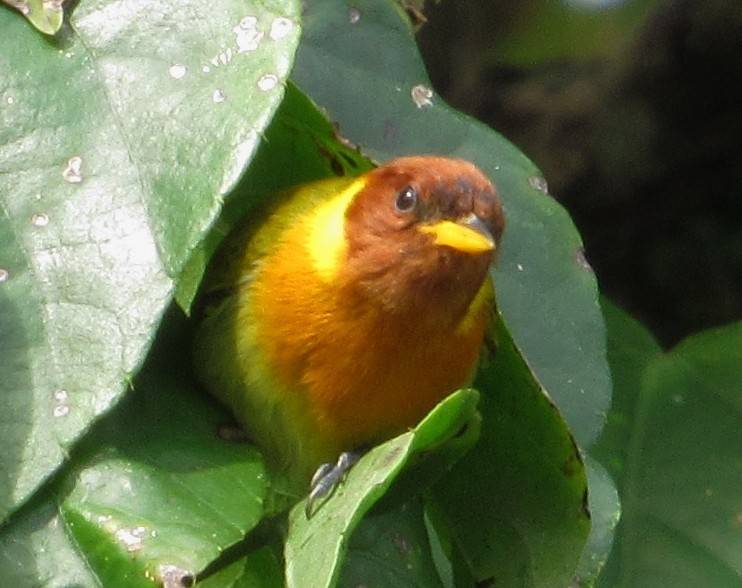
"rufous-headed tanager, saíra-ferrugem, tangara à tête rousse, tangara cabecirrufa" by Kahio T. Mazon is marked with CC0 1.0.
Endemic to the tropical forests of South America, the Rufous-headed Tanager gracefully inhabits the lush canopies and understory of the vibrant trees.
While this splendid creature is most commonly encountered in Brazil, its presence can also be witnessed in neighboring countries such as Bolivia, Paraguay, and Argentina.
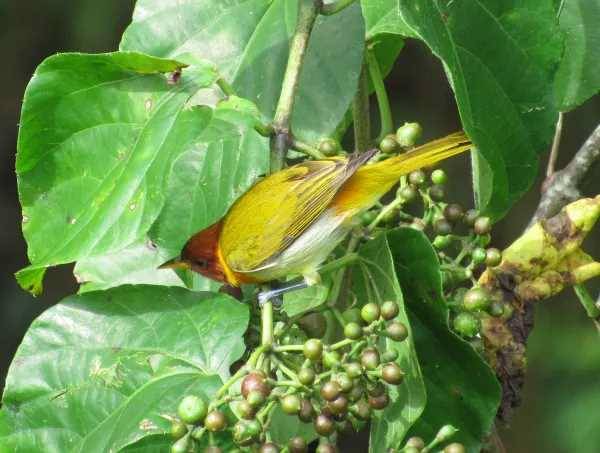
"rufous-headed tanager, saíra-ferrugem, tangara à tête rousse, tangara cabecirrufa" by Kahio T. Mazon is marked with CC0 1.0.
As a frugivore, the Rufous-headed Tanager indulges in a diverse array of fruits and berries, showcasing its adaptable palate.

"'Hemithraupis ruficapilla ruficapilla' – Rufous-headed Tanager, Rostkappentangare" by quitbanana is licensed under CC BY 2.0.
Sociable by nature, the Rufous-headed Tanager often forms small flocks of up to eight individuals.

Photo Courtesy of Luiz Carlos Rocha/CC BY-SA 2.0Despite its captivating allure, the Rufous-headed Tanager faces conservation challenges. Currently classified as a species of Least Concern by the International Union for Conservation of Nature (IUCN), the actual population size remains unknown.
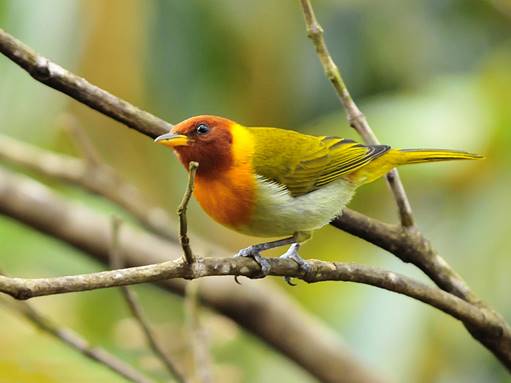
Photo Courtesy of Gmagnago/CC BY 3.0In a world where pristine rainforests diminish, it is imperative to safeguard the natural environments that sustain the Rufous-headed Tanager and its fellow inhabitants. By addressing the urgent need to combat deforestation and promote sustainable land use, we can strive to secure a future where the resplendent beauty of this species continues to grace the canopies of South America.
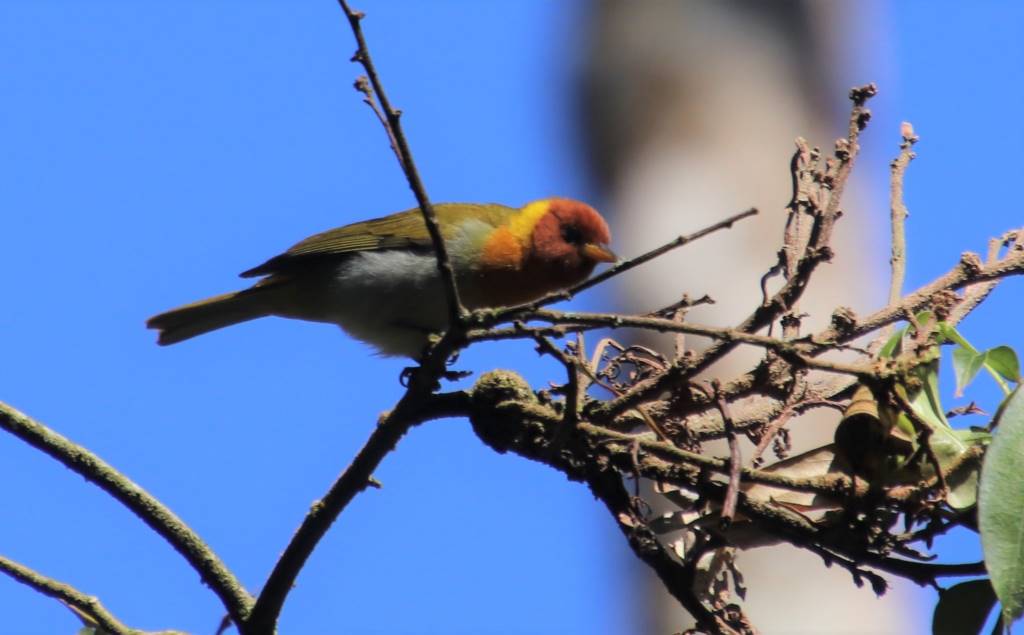
"rufous-headed tanager, saíra-ferrugem, tangara à tête rousse, tangara cabecirrufa" by Millie Basden is licensed under CC BY 4.0.
As we delve into the awe-inspiring realm of the Rufous-headed Tanager, we not only encounter its breathtaking magnificence but also recognize the fragility of its existence. Let us unite in preserving the remarkable biodiversity of our planet's rainforests and ensure that this avian jewel thrives for generations to come.
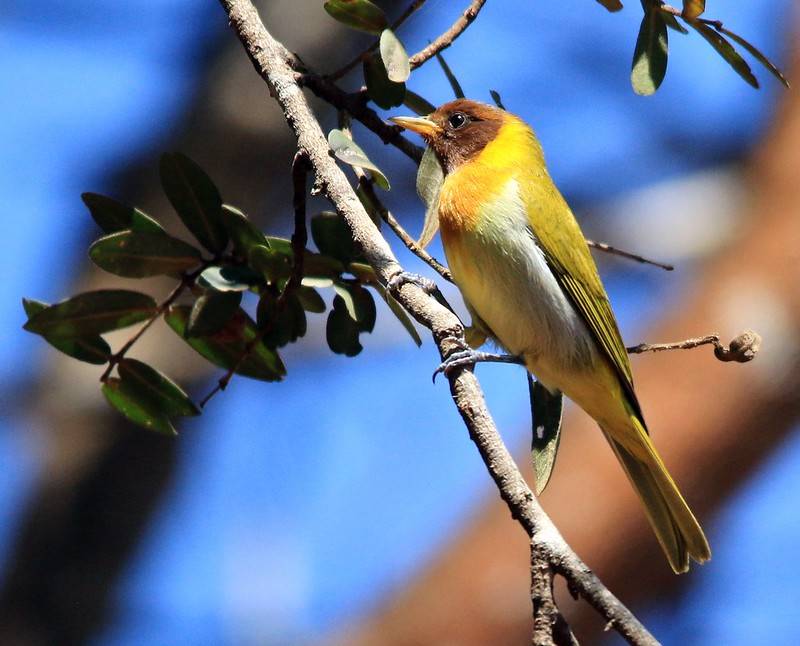
Photo Courtesy of Luiz Carlos Rocha/CC BY-SA 2.0Check out this bird in the wild right here below:
This article uses material from Wikipedia.org which is licensed under the GNU Free Documentation License via Copyright Wikipedia. Images on this page are the sole property of the photographers (unless marked as Public Domain). Please read the license and or contact the photographers directly before using them for any purpose. Thank you all.
